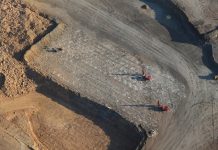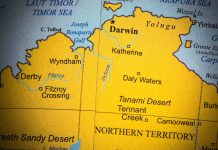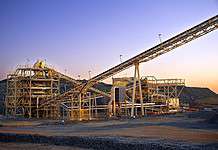By Rachel Dally-Watkins
March 2015

GREATER transparency, fiscal stability and community consultation were the common themes at the 2015 Investing in African Mining Indaba conference and exhibition, all aimed at improving investor confidence.
Held in Cape Town, South Africa from 9 to 12 February, Indaba is Africa’s largest mining event, dedicated to the capitalisation and development of mining interests in Africa.
Royalties and land ownership were familiar topics of discussions, raised once again as a result of the Democratic Republic of the Congo’s plans to increase royalties and revise its mining code.
South Africa was also under the spotlight, following President Jacob Zuma’s recent announcement that foreigners could no longer own land in the country.
Despite the current climate in the nation and concerns raised by analysts and investors, many presenters avoided discussing South Africa’s current program of rolling power outages and infrastructure concerns; uncertainty about the legislation governing mining; and wage negotiations in the gold sector.
Indaba 2015 was opened by South African Mineral Resources minister Ngoako Ramatlhodi, who instead outlined a National Development Plan as “a road map towards a future of plenty for all”.
“We gather at a time when, according to the recently released Oxfam report, the gap between the rich and the poor has grown to alarming proportions…” Mr Ramatlhodi said.
“We are also witnessing difficult times for the broader mining industry characterised by plummeting commodity prices, perhaps unprecedented in some respects, where the price of several minerals has conspired to collapse at the same time.
“Given the centrality of mining to the economy of the country, we are leaving no stone unturned, in providing a stable environment for the industry to grow. In this regard, we have established a forum where the ministry, the industry and labour are engaged in on-going conversations to resolve challenges, presenting from time to time.
“This forum is known as the Mining, Growth, Development and Employment Task Team (MIGDETT). Amongst others, the forum discusses meaningful economic participation for employees and communities, human resource development, health and safety.”
Mr Ramatlhodi said the country would take advantage of recent decisions by large miners to sell off significant assets by establishing a new South African mineral based “national champion” – either a single commodity company or a multi-commodity enterprise which would be community based with strong worker participation.
However, Mr Ramatlhodi did not provide any details on ownership, funding or timelines for the proposed venture, leaving analysts sceptical about the enterprise and how it would be run.
“There is a perception that not enough is being done,” Credit Suisse director of equity Justin Froneman said from the conference sidelines.
“Things are quite unstable at the moment and investors want to see mechanisms put in place to address that.”
Mr Froneman said investors needed to know more about Black Economic Empowerment (BEE) legislation, including whether or not the Department of Mineral Resources could revoke licenses as a result of poor BEE ratings and if companies had to maintain, or just achieve, a 26 per cent empowerment stake.

Former UK Prime Minister Tony Blair was one of the big names at the 2015 event, reflecting Indaba’s new ownership by UK company Euromoney Group.
Media were prevented from recording Mr Blair’s speech, but he reportedly called for the stabilisation of tax regimes in order to attract new investment.
In his keynote address, Mr Blair – who has counselled leaders in Rwanda, Sierra Leone, Liberia and Guinea through the Africa Governance Initiative – said African nations needed to commit to fiscal stability and predictability in taxation. Without these key elements, he said capital for exploration and development would not flow into any country.
However Mr Blair said that, even in today’s economic climate and given the sharp declines in commodity prices, the mining industry remained vital for Africa’s future and likewise still presented tremendous opportunities.
Meanwhile, Indaba 2015 was the setting for several African countries to establish mutual cooperation with the Indian mining sector.
India’s Union Minister of Mining and Steel Shri Narendra Singh Tomar led an Indian delegation that held discussions on increasing mutual cooperation on technical, infrastructure and investment aspects of the industry, to provide a better environment for Indian companies to invest in mineral assets.
The delegation reached a consensus on mutual agreements for mining reconnaissance, advanced mining and marketing with South Africa, Congo, Sudan, Namibia, Gabon, Ghana, Angola, Nigeria, Kenya and Mali.
Indaba 2015 was closed by Graca Machel, the wife of the late, former president Nelson Mandela. She called on mining companies to commit to further investment in communities and greater transparency, to change the landscape of mining in Africa.






















